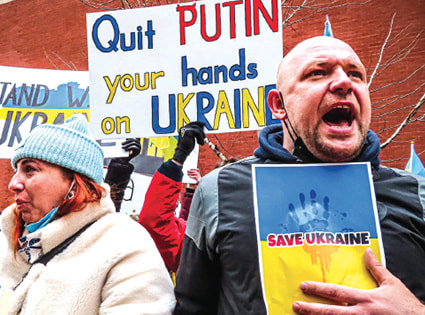Understanding the War in Ukraine: Russia’s miscalculation
On May 9th, during Victory Day, when Russia commemorates the end of WWII, Russian president, Vladimir Putin, gave a speech accompanied by a military parade to mark the occasion. During his government, the holiday has gotten a marked political overtone. Hence, this year, the international community watched closely. It was expected that the Russian leader would issue a formal declaration of war against Ukraine. This seems strange, and merely nominal. However, despite Russia’s actions being a war, it still denominates its invasion as a “special operation.” A declaration of war would allow it to make a more ample military mobilization, including the summoning of reservists. Yet, the speech did not include more than repetitions of his justification for the war: the so-called de-Nazification of Ukraine, and reports of the Russian incursion of the Ukrainian region of Donbas.
After almost 3 months of conflict, and after causing Europe’s biggest political crisis in recent years, Russia has not achieved significant victories in its invasion of Ukraine. This does not minimize the horrible atrocities against civilians but shows that the Russian forces are having trouble. Since the beginning of the offensive, it has not been able to achieve its main goal, the fall of Kyiv. At the beginning of the conflict, it was thought that the Russian army would take the capital quickly and change its government. Russian forces entered with small units, as they did in Mali, Libya, or even Crimea in 2014. Yet, after finding strong Ukrainian resistance, it was impossible for them to take the capital. That’s why, according to an analysis by defense expert, Michael Clarke, Russian troops tried to take cities surrounding Kyiv to drown the resistance and, despite having caused much damage, they haven’t been able to control cities like Kharkiv or Mykolaiv. The only significant victory by the Russian forces has been to capture the cities of Mariupol and Kherson. Because of this, Russian efforts have now shifted, with little advancement, to take the region of Donbas. According to Clarke, the Russian army made grave mistakes by dispersing forces in a broad territory with little numbers and no central command. These mistakes are having important consequences. Pentagon Intelligence reports state that there is very low morale among Russian soldiers, to the point of ignoring orders. In addition, NATO estimates, at the end of March, stated that at least 40,000 Russian troops had either been killed, injured, or captured, even though this number is hard to verify. We don’t know the direction the conflict will take. Despite more obstacles than expected and numerous sanctions, there’s no signal that the Russian forces will back down, but we do know this war has been much harder than expected. |
